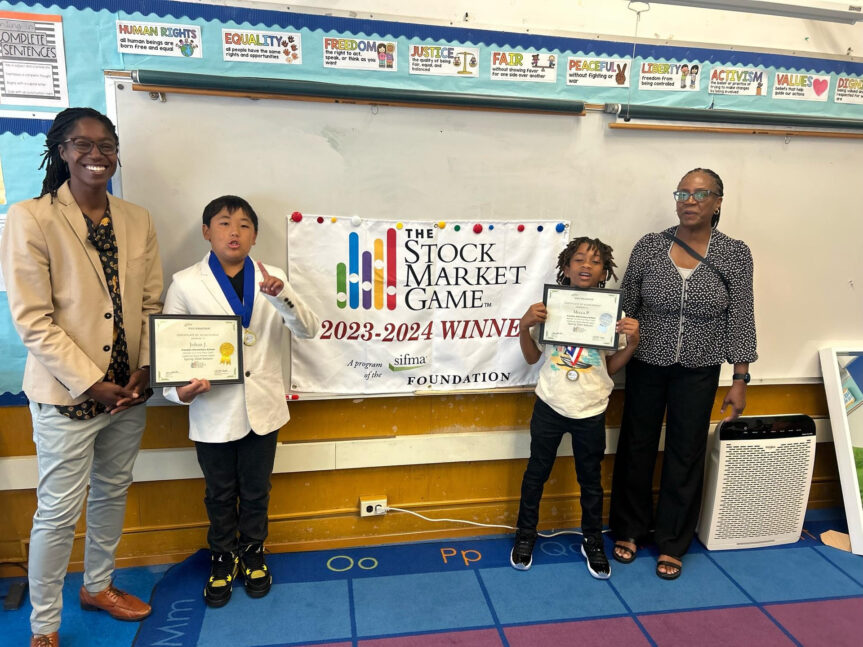Everyone has ups and downs when it comes to managing their money. We may not always make the best, most informed decision about every purchase we make. People who are financially literate, though, are more likely to also save money and operate under a budget. These skills are especially important for young people to learn so they can avoid being trapped in a cycle of debt and economic insecurity that is a part of many adults’ lives.
Stephisha Ycoy-Walton is a financial advisor and Oakland public school parent. Stephisha believes that teaching students financial literacy skills can also benefit them throughout their life, starting right now. As soon as a young person understands that a penny has value, they should start to understand financial concepts that ramp up as they grow older.
This past year, Stephisha took it upon herself to launch financial literacy workshops with over 15 Oakland public schools and other Bay Area organizations that work with young people. She is an Oakland Promise mentor and was appointed to Oakland’s Budget Advisory Commission.
“Financial literacy is a way to increase math scores, which are 2 out of 10 for Black and Brown students and is totally unacceptable,” Stephisha said. “And when students are beginning to learn the lingo of financial literacy and bring that back to their everyday conversation, that will only enhance what they’re doing in ELA because they’re learning and reading in a space that they’re genuinely excited about and encouraged around.”
The financial literacy concepts are taught in a fun way intended to engage students. Many are game-based. For example, at Franklin Elementary, Stephisha led fifth-grade students through a version of the popular TV show ‘Shark Tank’ (‘Tiger Tank’ for the Franklin Tigers) and a stock market simulation.

“They’re beginning to understand how the New York Stock Exchange works, which are the top companies in our economy, and look at their revenue and production today versus what it was yesterday,” she said. “That’s addition and subtraction. So when we say, ‘Fin-lit’ (financial literacy) is the new math, that’s what we’re talking about.”

Stephisha began working with the students at Franklin after receiving an invitation from retired investment banker Val Chapman, the founder of Financial Literacy for Kid$, an organization dedicated to helping 4th and 5th grade students learn about saving and investing. Chapman is part of a state financial literacy task force organized by State Superintendent of Public Instruction, Tony Thurmond.
The task force was formed to back a state assembly bill enacted this summer that will require California students to take a one-semester course in personal finance. Stephisha believes families benefit the more they learn about this new requirement, and that the course should also be just the beginning of educating families around financial literacy.
Stephisha also wants to make sure families are aware of savings accounts they can take advantage of that have free money for their kids’ college education, such as the CalKids initiative, where eligible low-income families can access funding to start a college savings account. Stephisha works closely with Northern California Promise Coalition and Executive Director Meredith Curry Nunez on financial literacy initiatives, especially the CalKIDS initiative.
“That is $1.9 billion that has already been dispersed among newborns and 1st-through-12th graders,” Stephisha said. “And those accounts simply need to be claimed by going to calkids.org.”
Financial literacy is a common conversation topic in the Ycoy-Walton household. Stephisha said their family is reading ‘How to Turn $100 into $1 Million’ and her son, Karter, a 5th grader, has been eagerly building out his financial plan and goals.
“First he said, ‘I want to help the homeless,” Stephisha said. “Then he said, ‘I want a Lamborghini.’”

